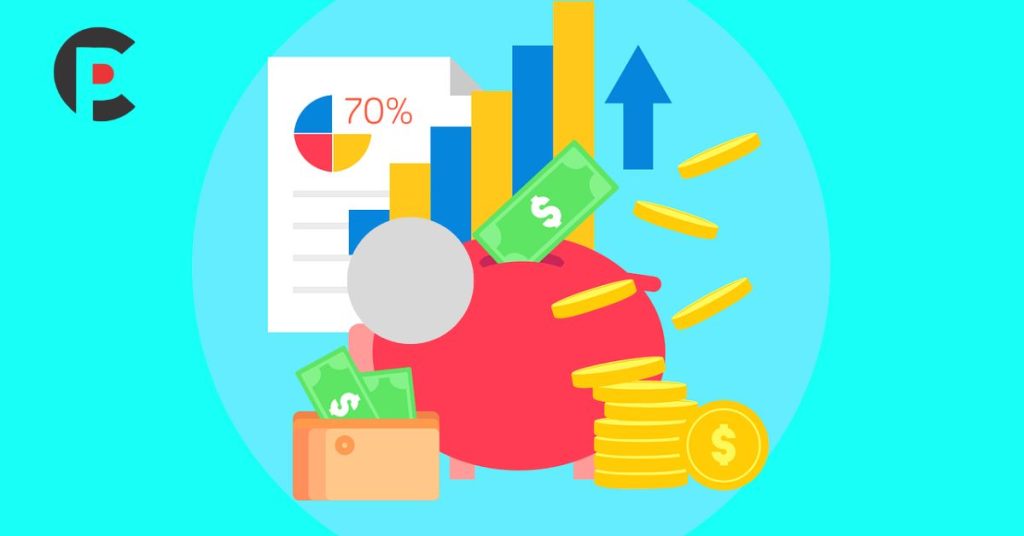A monthly budget is a financial plan that helps individuals and households manage their income and expenses on a monthly basis. It involves tracking and categorizing all the income and expenses that occur over a given month, with the goal of ensuring that spending does not exceed income and that savings goals are met.
To create a budget, individuals typically start by estimating their total income for the month, including any regular paychecks, freelance income, or other sources of income. They then create a list of all their expenses for the month, including rent or mortgage payments, utilities, food, transportation, entertainment, and other expenses.

Once all income and expenses have been accounted for, the individual can calculate their monthly net income by subtracting their total expenses from their total income. If their net income is positive, they can allocate some of that money toward savings or other financial goals. If their net income is negative, they may need to adjust their spending in order to avoid going into debt.
Throughout the month, individuals can track their spending to ensure that they are staying within their budget. They can use a variety of tools and techniques to help them do this, such as budgeting apps, spreadsheets, or simply tracking expenses manually in a notebook.
By creating and sticking to a budget, individuals can gain greater control over their finances and make sure that they are allocating their money in the most effective and efficient way possible. It can also help them plan for long-term financial goals, such as saving for a down payment on a house or paying off debt.
- Reduce stress and anxiety around money matters.
- Avoid overspending and falling into debt.
- Plan for future goals, such as buying a house, starting a business, or saving for retirement.
- Build an emergency fund for unexpected expenses.
- Improve your credit score by paying bills on time and reducing debt.
This Blog will provide tips and tricks for staying on track with your budget, including assessing your income and expenses, setting realistic financial goals, creating a budget plan, tracking your spending, cutting back on non-essential expenses, finding ways to increase your income, planning for unexpected expenses, reviewing and adjusting your budget regularly, getting creative with saving money, using tools to help you stay on track, celebrating your achievements, and concluding with final tips for mastering your monthly budget. By implementing these strategies, you can take control of your finances and achieve your financial goals.
Assess Your Income and Expenses:
Calculating your monthly income is the first step in creating a budget plan. Your monthly income includes any money you receive on a regular basis, such as:

- Salary or wages from your job
- Freelance or contract work
- Investment Income
- Social Security benefits
- Rental income
To calculate your monthly income, add up all of your sources of income and divide by 12 to get your average monthly income.
When creating a budget plan, it is important to consider all types of expenses, including:
- Fixed expenses, such as rent/mortgage, utilities, car payments, insurance, and loan payments.
- Variable expenses, such as groceries, entertainment, dining out, and clothing.
- Periodic expenses, such as car repairs, medical expenses, and vacations.
- Unexpected expenses, such as emergency home repairs or medical bills.
Understanding your cash flow is critical to creating a successful budget plan. Cash flow is the amount of money coming in and going out of your account each month. To calculate your cash flow, subtract your total expenses from your total income. This will give you an idea of how much money you have left over each month, which you can use to pay off debt, save for emergencies, or invest in the future. By understanding your cash flow, you can make informed decisions about how to allocate your money and achieve your financial goals.
Set Realistic Financial Goals:
Setting financial goals is essential for achieving financial success. Without specific and measurable goals, it can be difficult to stay motivated and on track with your budget plan. Here are some reasons why setting goals is important:

- Provides direction and focus: Goals give you a clear sense of direction and focus your efforts toward achieving specific outcomes.
- Keeps you accountable: Setting goals holds you accountable for your financial decisions and motivates you to take action.
- Helps measure progress: Goals provide a way to measure progress and celebrate achievements along the way.
To set realistic financial goals, follow these steps:
- Identify your long-term financial goals: What do you want to achieve in the long term, such as buying a house or saving for retirement?
- Break down your goals into short-term milestones: Divide your long-term goals into smaller, more achievable milestones that you can work towards on a monthly or yearly basis.
- Make your goals SMART: Ensure your goals are Specific, Measurable, Achievable, Relevant, and Time-bound. This will help you to stay focused and motivated.
- Prioritize your goals: Determine which goals are most important to you and focus on those first.
Here are some tips for staying motivated when working towards your financial goals:
- Visualize success: Visualize what achieving your goals will look like and how it will feel. Use positive affirmations and reminders to keep you focused.
- Break down your goals into smaller tasks: Breaking your goals down into smaller, more manageable tasks can make them feel less overwhelming and more achievable.
- Celebrate achievements: Celebrate your milestones and successes along the way, no matter how small they may seem.
- Surround yourself with support: Surround yourself with positive and supportive people who encourage and motivate you to achieve your goals.
By setting realistic financial goals and staying motivated, you can achieve your financial aspirations and take control of your financial future.
FAQs
What is a monthly budget?
A monthly is a financial plan that helps you track your income and expenses for a specific month. It typically includes a list of all the money you expect to receive in a month and all the expenses you expect to have
Why is it important to have a monthly budget?
Having a budget can help you manage your money more effectively. It allows you to track your spending and make sure that you don’t overspend or run out of money before the end of the month. It can also help you save money and reach your financial goals.
How do I create a monthly budget?
To create a budget, you need to start by listing all of your sources of income for the month. This might include your salary, any freelance work you do, or money you receive from investments. Next, list all of your expenses, including fixed expenses like rent and utilities, and variable expenses like groceries and entertainment. Finally, subtract your expenses from your income to determine how much money you have left over each month.
What are some tips for sticking to a monthly budget?
One tip for sticking to a monthly budget is to track your spending carefully. Keep a record of everything you spend and compare it to your budget regularly. You should also try to cut back on unnecessary expenses, such as eating out or buying things you don’t really need. Finally, be realistic about your budget and adjust it as necessary to ensure that you can stick to it.
How often should I update my monthly budget?
It’s a good idea to update your budget every month, as your income and expenses may change from month to month. You should also update your budget if you experience a major life event, such as getting a new job or moving to a new city.
